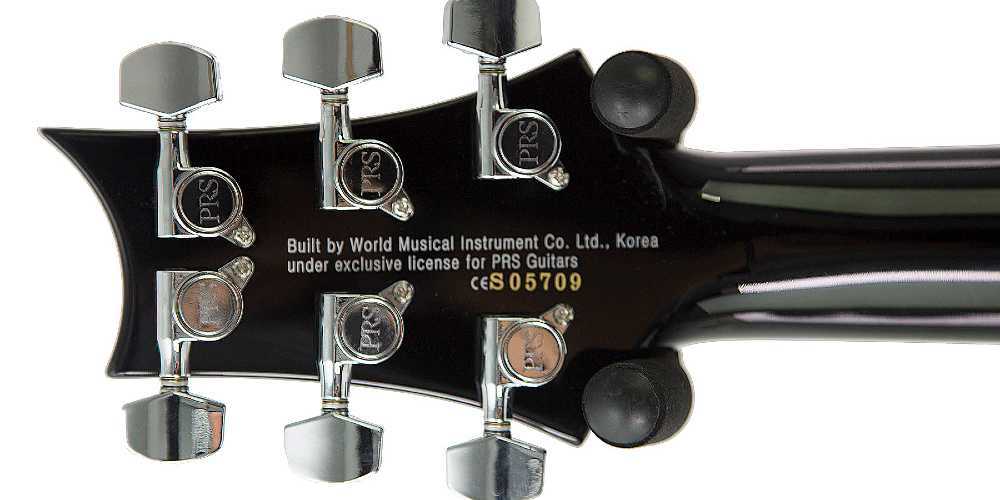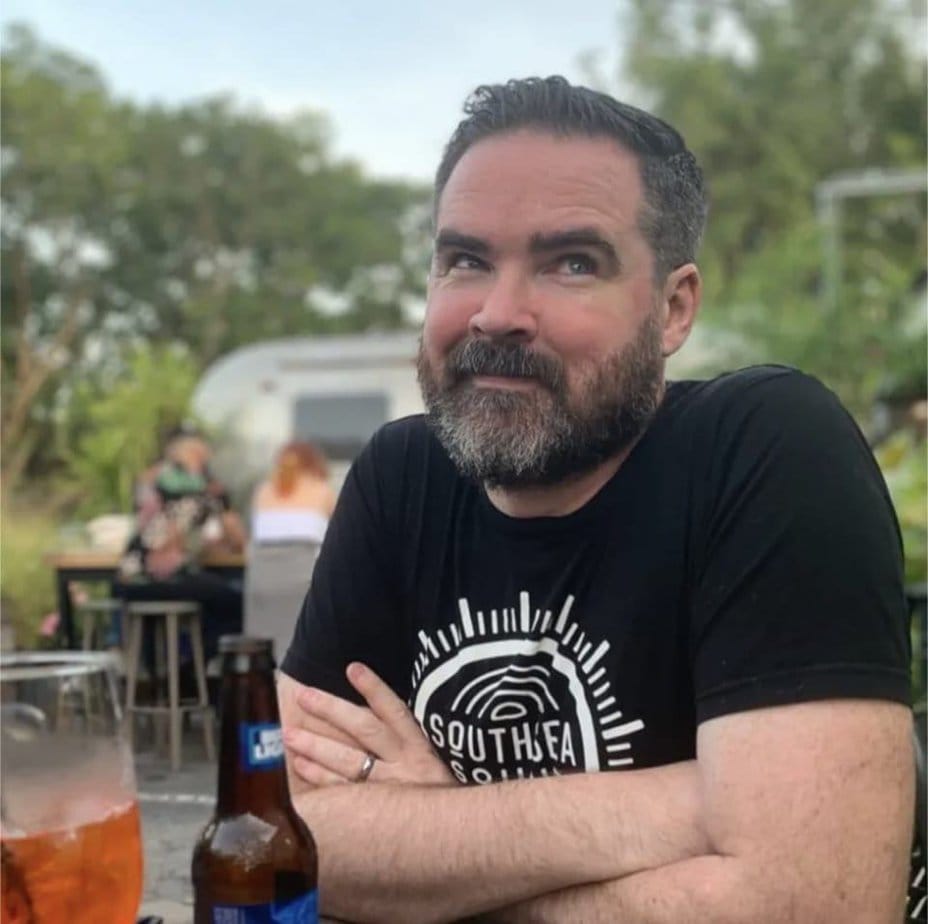World Musical Instruments Korea are a large single-facility manufacturer of a huge variety of guitar models for internationally known brands such as PRS, Chapman and LTD.
WMIC (as they are often styled) are based out of Incheon, South Korea and have a gigantic facility that is considered one of the “last standing” Korean guitar manufacturers.
But what brands are made there? Let’s take a look.
Contents
What is WMIC’s Reputation?
While it’s surprisingly hard to get actual company information or history for World Musical Instruments Korea, what we can say is they’ve been making guitars for decades. And as with most Korean manufacturers, they have a reputation for having above average quality.
In his 2016 “Who Makes Who” video about guitar manufacturers, Phil McKnight described WMIC as “the biggie for quality.”
What’s nice about (WMIC) is they don’t make anything cheap. They don’t make any student-grade instruments. They only make good stuff, and that’s how they keep that (quality going). That’s just how it goes.
Quality Variations Across Brands
So how does WMIC make so many guitars for different brands at different price points and not have them come out the same?
Typically when a company partners with a manufacturer to produce instruments for them, they not only provide the plans for the guitars themselves, they also agree to a large number of manufacturing standards.
For example, companies will agree how often the CNC machine is reset, which is when the reset button is pressed and the cutter moves back to coordinates 0, 0, 0 on the X, Y and Z axis. The reason you want to do this is that no machine is infallible. Over time it can get slightly out of alignment, at which point it’s no longer cutting in the exact right spots.
Say Company 1 wants the CNC reset once ever hour, while Company 2 only needs it reset once a day. Both of these have associated costs, which effect the total number of guitars can be output in the course of the day, which effects the maintenance schedule of the machine, etc.
Therefore, you may find the cheaper brand who reset the machine less often have slightly worse quality than the company that have the machine reset regularly.
There are a host of these small agreements that have an impact on both the price and quality of the output. Do they want the frets glued or just pressed? Do they want them dressed on site? Do they want cheap or expensive internal wiring?
All of these small manufacturing details agreed upon have an effect on the final product.
Final QC in the US
Another huge difference is that many guitars go through a final QC process once they get to the US.
For example, PRS set up all of their SE line at their factory in the US before they go out to stores and ultimately customers. One step removed from that is Chapman, who famously have their guitars QC’d by the stores that buy them to sell. Finally, you have a company like Rondo who ship their Agile guitars to customers without any QC. This of course is reflected in the price.
As you can see, there are a host of variables that go into how one factory in South Korea can make such a wide range of guitars that hit so many price points, and ultimately give the final consumer such a wide range of playing and quality experiences.
A Caveat Regarding the List
First off, it is quite difficult to pin down what brands are being manufactured by WMIC at any one time.
The list of brands under contract isn’t generally released to the public. At times, even the manufacturer might not know if a brand has moved on to another facility for a given model or if they’re still just selling from a backlog of old stock.
It’s also the case that a brand may have certain models manufactured in multiple factories due to parts or wood availability, etc.
That means a list like this is always a moving target, but here’s the best we can say at the time of writing!
Guitar Brands with Models Manufactured by World Musical Instruments Korea
- Agile
- BC Rich
- Brian May Guitars
- Chapman
- Dean
- Diamond/DBZ
- Eastwood
- Gretsch (Electromatics)
- Guild (Newark St. models)
- Ibanez (small number of models with W serial)
- Line6
- LTD
- Michael Kelly Guitars
- Ormsby (GTR line)
- PRS SE (now mostly moved to Cor‐Tek in Indonesia)
- Schecter
- Strandberg (until mid-2017)
- Wylde Audio (sub-brand of Schecter)
The Future of World Musical Instruments Korea
In a July 2019 interview with Music Radar, PRS’s COO Jack Higginbotham revealed that they had moved most of their SE line from Korea to the Cor‐Tek (Cort) facilities in Indonesia.
The draw for PRS was that, instead of WMIC’s facility where many different guitars by many different brands are made under one roof, Cort had a facility that was 100% dedicated to only PRS SE guitars.
To have our own building where I know the guy who makes the necks or the bodies, I know the guy who sets the neck angles and glues them together and they’re going to do that every day – they’re not going to switch to making a Hagstrom the next day, or an ESP, or whatever. We now have a focus on our guitars that previously was never able to happen.
Ultimately, Higginbotham said that the mix of dedication to PRS’s guitars as well as the more favourable economics of moving from Korea to Indonesia meant WMIC’s time with PRS is likely coming to an end.
We still have some SE guitars made in Korea, but will it always be that way? Economics say probably not.
However, WMIC still have a wide range of brands that turn to them for their consistency and quality, as well as their willingness to create small batches of as little as 50 guitars, which is a huge coup for fledgling guitar brands.
Long may it continue.


